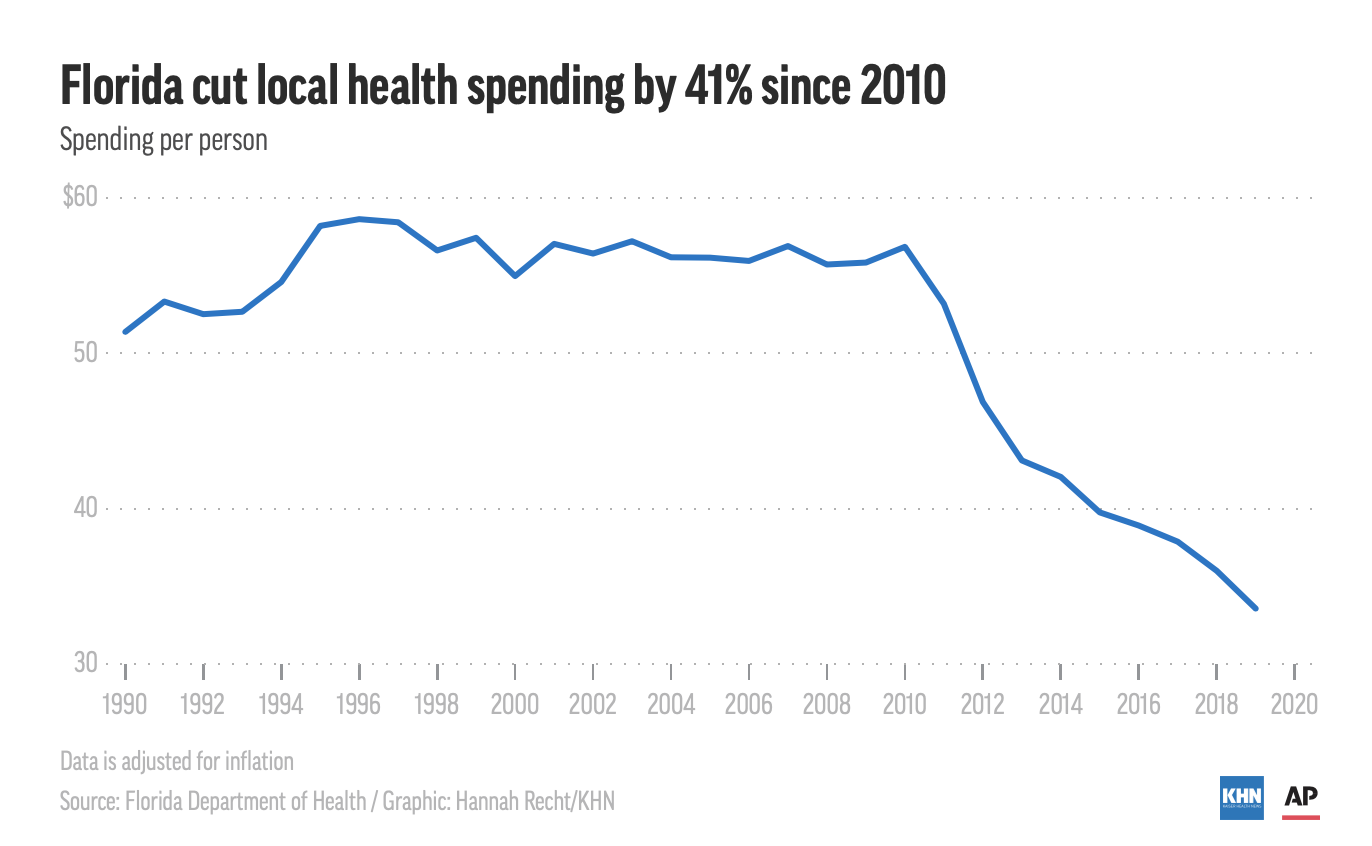Will SB48 Make Educating Your Child More Difficult Than Finding A Covid Vaccine?
“If you think finding a Covid vaccine for your grandparents is difficult, wait till you have to compete on the open market for your child’s math instruction.”
Covid Vaccines
After months of social isolation, Florida’s senior citizens are ready for the protections provided by the Covid vaccines. Actually receiving the vaccine, for many, has been an exercise in frustration. The Orlando Sentinel highlighted the concerns in an article titled “Hurdles Leave Florida Seniors Struggling to Get Vaccinated“:
Despite Gov. Ron DeSantis’ insistence that seniors are Florida’s top priority for COVID-19 vaccinations, plans to inoculate the state’s oldest residents have failed many Central Florida elders. Like Hardy, some have called the Orlando Sentinel looking for help.
They say they have been thwarted by a system which penalizes people without a computer, cell phone or transportation.
“It’s just fruitless and I get agitated,” said Annie Battle, 81, who is house-bound in an Orlando condo.
She said she has resigned herself to the possibility she’ll never get vaccinated.
When offered President Joe Biden’s plan to enlist the Federal Emergency Management Agency (FEMA) to help with the nation’s vaccine rollout, Governor DeSantis, who has been directing more and more vaccine to private entities dismissed the idea saying it would be “a big mistake” to utilize FEMA resources and “that’s not necessary in Florida.”
Much of the frustration stems from the demand for vaccines far exceeding the supply but, like Ms. Battle, some seniors feel at a distinct disadvantage. AARP State Director Jeff Johnson described the ever-changing distribution channels as “super confusing,” especially for seniors without internet access, computer savvy or transportation. Some seniors are lucky enough to have relatives able to devote time trying to secure them a vaccination but, even then, “the experience people are having is they feel like they’re chasing their tail.”
You may be wondering “Why is Accountabaloney writing about the vaccine rollout?” For more than a decade, Florida has been defunding and decimating its Public Health Department, “leaving it especially unprepared for the worst health crisis in a century.” 
Now, when public health experts are needed more than ever, vaccine distribution has been handed over to the Department of Emergency Management and our Governor seems determined to direct limited vaccine supply away from hospitals and health departments and towards retail pharmacies, such as Publix. Seniors, especially those lacking transportation or computer savvy, are understandably frustrated and worried about their health.
This is the same scenario we are watching play out in Florida’s Public Schools.
For more two decades, Florida has been moving down the path towards the privatization of public education. The goal is to defund and dismantle public schools, to unbundle their services and to replace them with an array of individual education options, which parents will choose from to reassemble a tailor-made education experience for their child. Certified teachers, elected school boards and school buildings will not be required. This vision is well described in the new book “A Wolf at the Schoolhouse Door,” by Jennifer Berkshire and Jack Schneider (Floridians should read this book). For the past 2 decades, driven by beliefs in free markets, convinced that education should be a private good rather than a public good and eager to minimize taxes and destroy the collective power of public unions, Florida’s legislature has been defunding public schools, using high stakes standardized tests to label them as failing and encouraging families to leave them for private, profitable options.
Unbundling
Berkshire and Schneider describe the ultimate goal of the privatizers: the “unbundling” of public education, a “post brick and mortar” era of publicly funded education options where, instead of traditional public school buildings, education “consumers” pick and choose from an assortment of learning related products and services in much the same way that Comcast customers choose what channels they want in their cable package. Despite Florida’s constitutional mandate (their “paramount duty“) to provide adequate provision for a uniform, efficient, safe, secure, and high quality system of free public schools, the idea of unbundling Florida’s public schools is a VERY popular with Florida’s profiteers:
“The current one-size-fits-all system is incapable of providing every student with a high-quality education because children aren’t standardized, argues Doug Tuthill, head of the Florida school choice advocacy group Step Up For Students and a proponent of unbundling. Instead, families should be empowered to purchase from a selection of products and services, using the education equivalent of a health savings account. Writes Tuthill: “ESAs are how parents will pay the various education providers who collectively are providing their child a customized education.”” -From “A Wolf At The Schoolhouse Door,” excerpt published in Washington Post, Answer Sheet, 12/11/2020
Profiteers, like Tuthill, have always had the best rhetoric when describing ESAs… customization, personalization, etc, when the real goal is to break public schools into pieces, dilute or eliminate public oversight and sell off public property to profiteers. Are there any Florida communities who have requested the disruption and/or elimination of their public schools? In a completely unbundled education world, will parents have to search for their child’s math or reading instruction, competing against their neighbors for scarce products or the best tutor? Will families compete for education like our grandparents are competing for Covid vaccines? Who believes that the best products will be available to ALL students, regardless of transportation needs, internet access or personal resources? Anyone? Anyone?
SB48
Last week, as we predicted months ago, Senator Manny Diaz Jr. filed Senate Bill 48 (SB48) bringing Universal ESAs to Florida. SB48 will convert all 5 of Florida’s current voucher programs into two “streamlined” Education Savings Accounts (ESAs) – combining McKay vouchers and Gardiner ESAs into one ESA program for children with special needs and combining the remaining 3 Florida vouchers (Florida Empowerment Scholarship or FES, Florida Tax Credit Scholarship or FTCS and Hope/Bullying Scholarship) into a single FES-ESA. This is the privatization end game for Florida and with solid GOP majorities in both chambers, it is very likely to pass.
Instead of simply funding tuition at participating private schools, recipients of the new FES-ESA will now be handed the equivalent of a preloaded, publicly funded debit card and asked to assemble their child’s education from a potpourri of learning options. Tuthill calls it customization. We think it sounds confusing. Qualified purchases would include digital devices, Internet access, summer camps, private tutoring programs, full or part time tuition to private schools, after school programs, virtual classes, contributions to the Florida Prepaid College Program, even contracted services, including individual classes, provided by a public school or school district.
SB48 makes it clear that FES parents are responsible for determining “the appropriate placement or the services that best meets the needs of his or her child” and, apparently, it is none of the taxpayers’ business whether actual learning occurs. While public schools are held accountable for student performance and learning gains on onerous state created standardized assessments and third graders are retained based on state test scores, FES-ESA families can elect to forgo standardized testing completely, opting instead for the same sort of annual evaluation required for registered homeschoolers which only requires demonstration the student’s “educational progress at a level commensurate with her or his ability.” (f.s. 1002.41(1)(f))
The income eligibility level for the new FES-ESA will be 300% of the Federal Poverty Level ($78,600 for a family of 4) and will have an income escalator, allowing the income eligibility levels to automatically increase over time. Eventually, everyone will qualify. After including the current FTCS and Hope voucher recipients (both which are currently funded through diverted tax credits) in the FES program (which is directly funded through tax dollars), the program is scheduled to increase by 1% of the public school population, or 28,000 new ESAs every year.
The bill also removes the prior public enrollment requirement. This is not a plan to provide escape from a “poor-fitting” public school. It is designed for those who never want their children to step foot in one.
You can read more about SB48, and the response of key stakeholders, in this Tampa Bay Times article which refers to ESAs as “the holy grail in the school choice movement.” In it, Doug Tuthill argues that the state would save money by directly funding the vouchers and that his organization, Step Up For Students (which currently is tasked with convincing corporation to contribute to the voucher programs in exchange for tax credits) will transition to focusing on assuring families are spending the money appropriately. For their oversight work, Step Up could claim an administrative fee up to 2.5% of the account total (2.5% of $1 billion is $25 million). Not surprisingly, Tuthill claims “ESA’s are great for families.”
But are they good for the taxpayer? When Arizona created an ESA program in 2011, opponents warned that its accountability and transparency provisions were “almost a sham.” Indeed, according to a 2017 report, “the warnings of lax oversight and little accountability proved prescient. Money was misspent but the state recovered almost none of it.” Unlike other social welfare program, which in Arizona have some of the nation’s most restrictive rules, with ESAs “there’s an inherent assumption that parents, no matter what, are able to make the best choices and the government should get out of the way.”
SB48 will outsource the oversight of Florida’s $1 billion voucher program to private organizations that benefit from program expansion. There is no local oversight from elected officials. The bill even reduces the frequency of program audits from annually to once every three years. It is a recipe for fraud and abuse.
When similar legislation was proposed in Michigan in 2012, Nancy Flanagan asked “Would the good people of Michigan really allow their public education system (which was once highly regarded) to be exploded and then re-marketed, in pieces?” Will Floridians?
Flanagan also wondered: “Has the legislature considered all the auxiliary services and programming that community schools provide, and how they will be impacted by dismantling the funding system? Sports? Clubs? After-school programming, daycare, community education and a place for senior citizens? Ceremonies and events? There’s a lot of value and tradition embedded in community schools–isn’t that worth a great deal?”
Floridians need to be asking questions. LOTS of questions.
- Why are we talking about blowing up our public schools while the State is touting the importance of their remaining open during Covid?
- Why are we expanding unaccountable homeschool options when districts have been asked to bring distance learners back into the classroom (despite the pandemic risks)?
- Do parents want to compete on the open market for their child’s math instruction? Do families want to scavenge for education programs for their children in the same manner they are searching for life saving vaccines for their grandparents?
ESAs are publicly funded yet lack transparency, oversight and accountability. Their goal is to unbundle and dismantle public schools. The biggest question remains: Who (besides the profiteers) actually wants this?


4 Comments